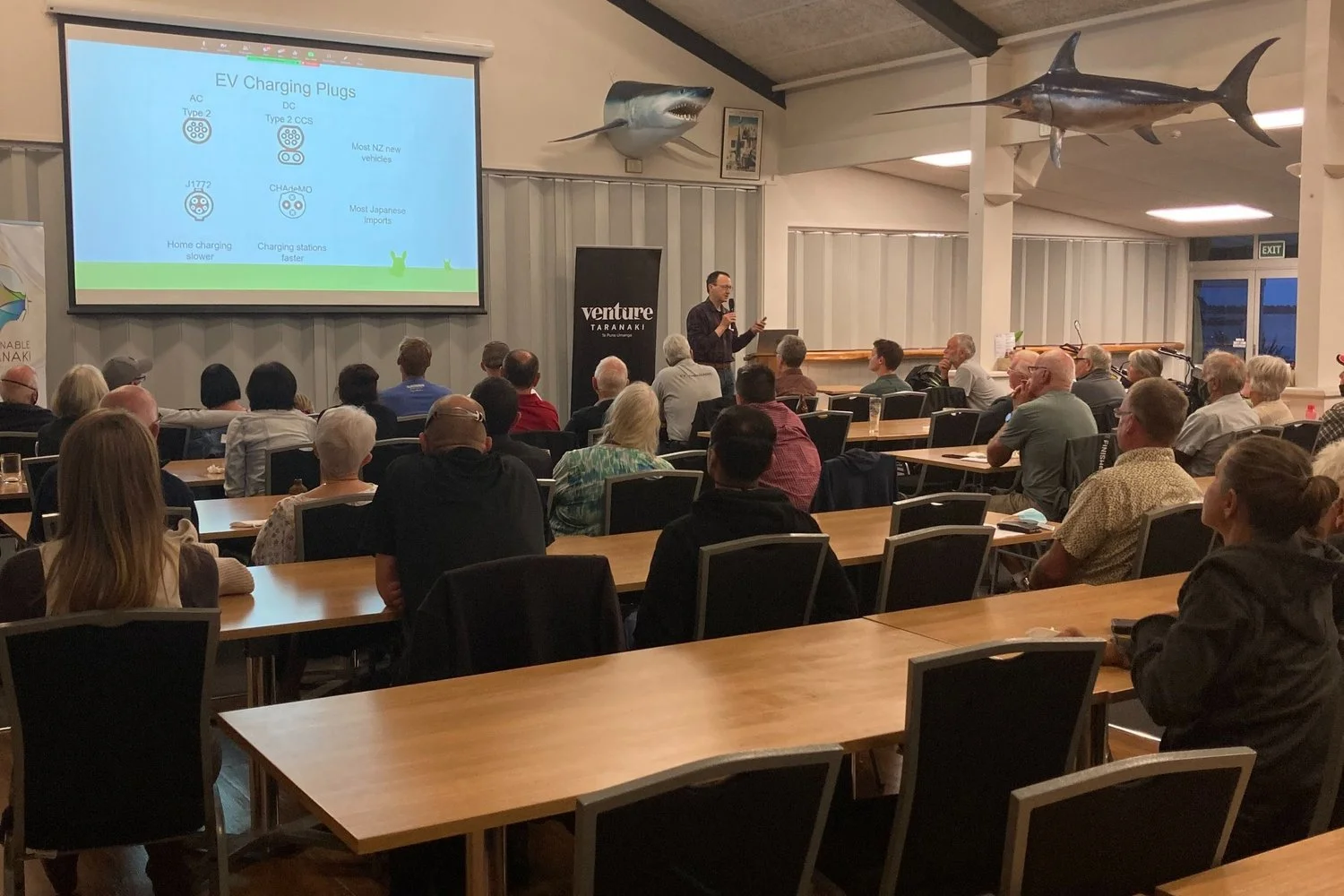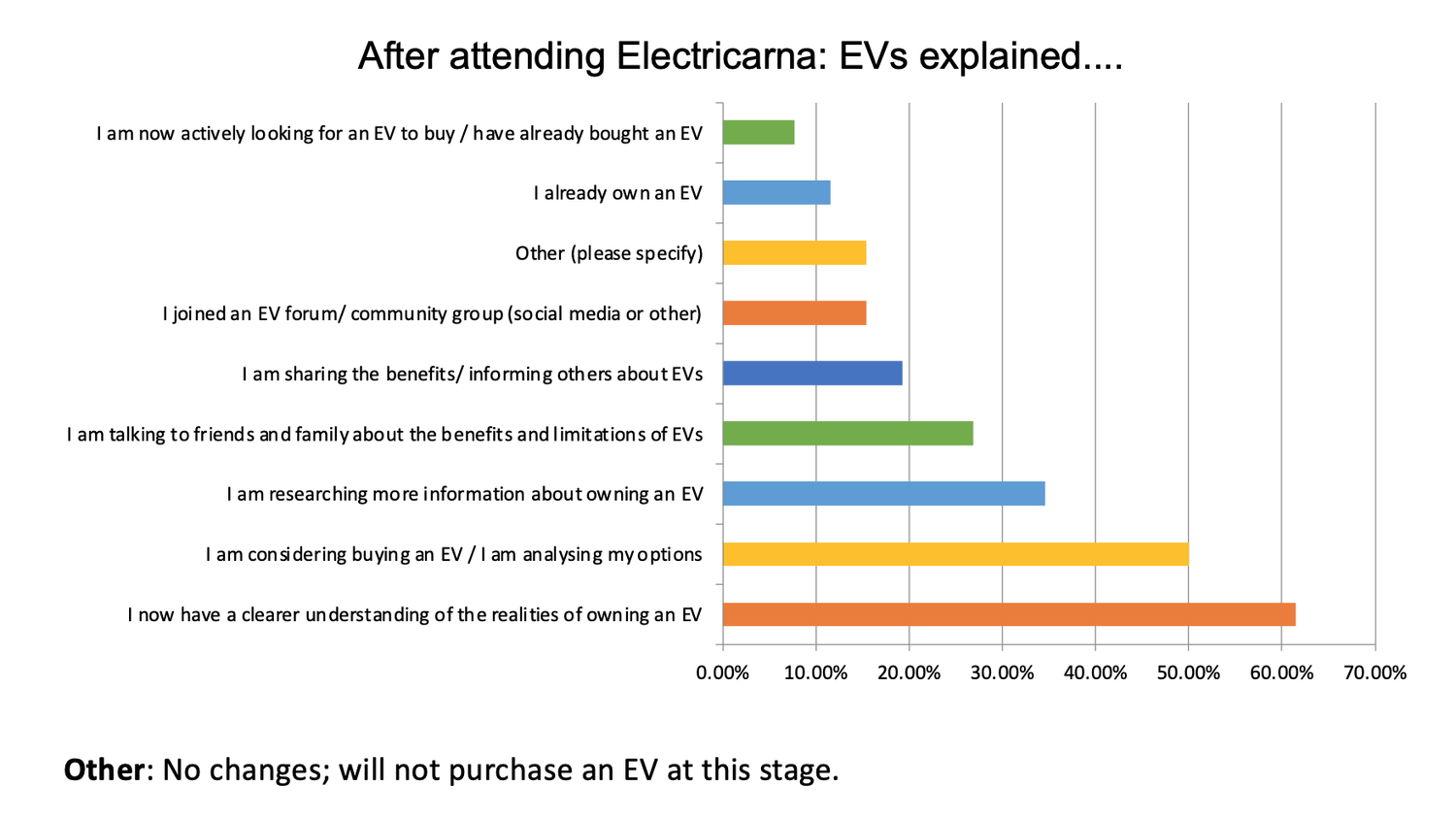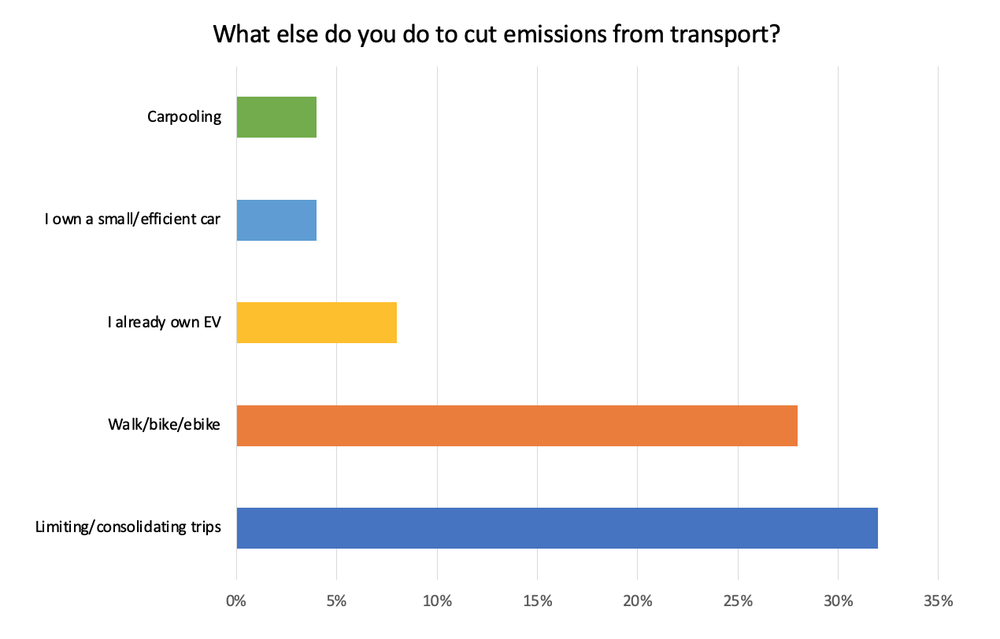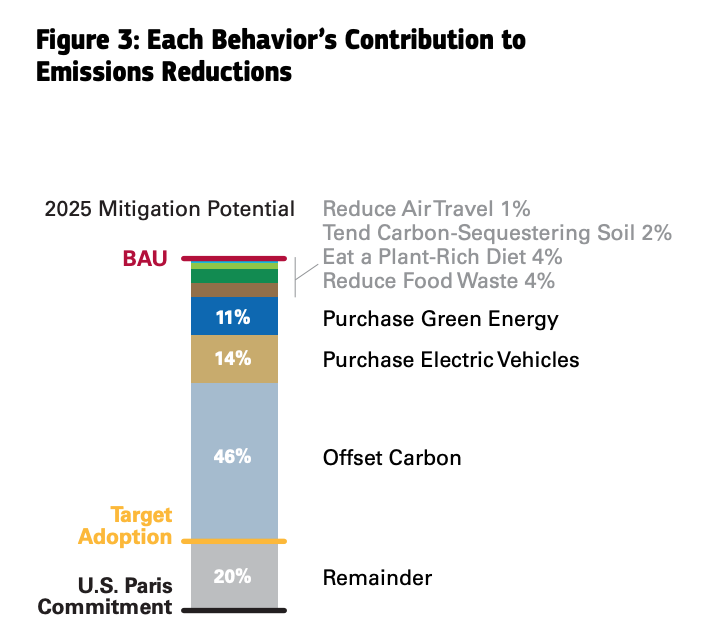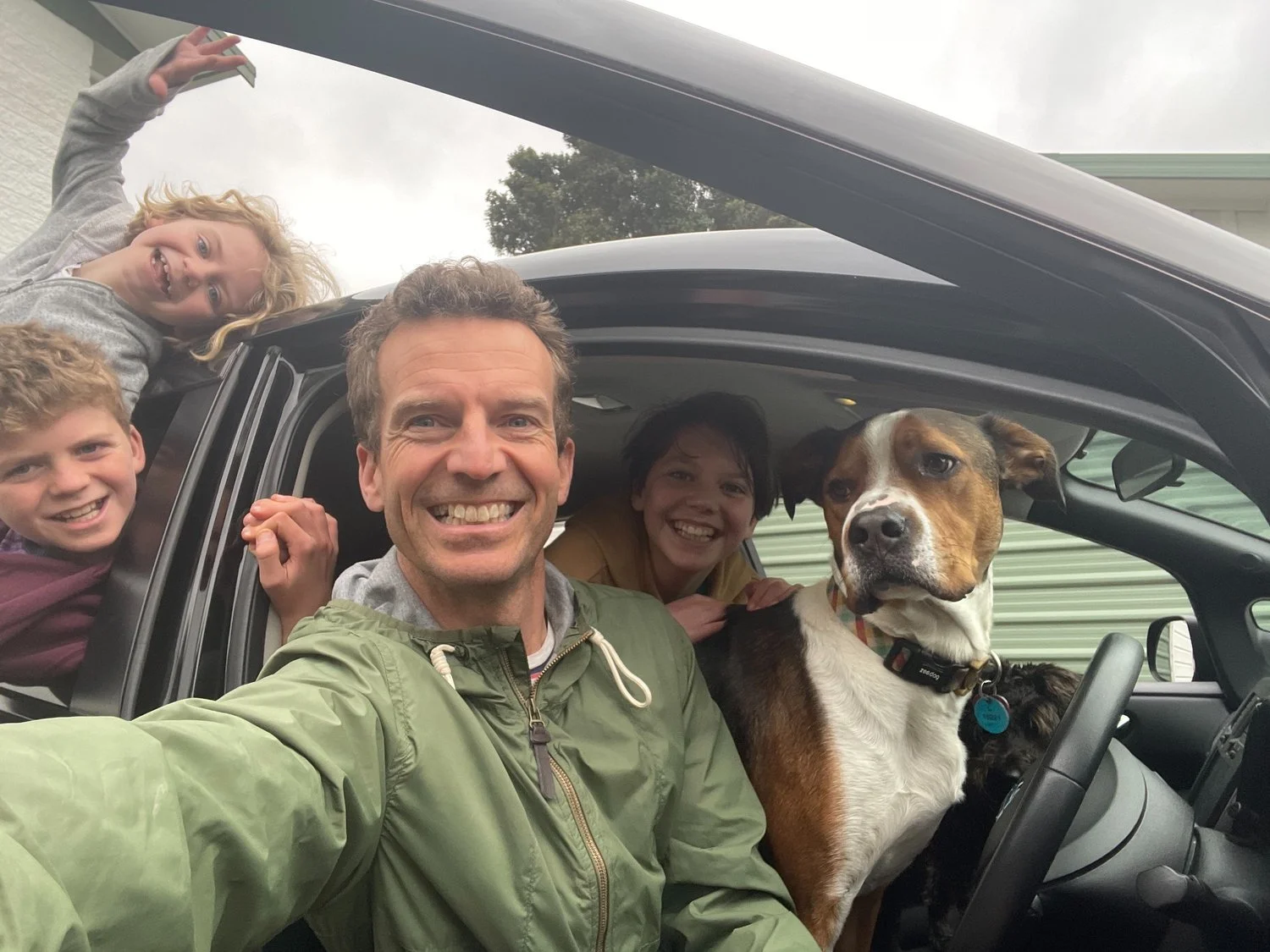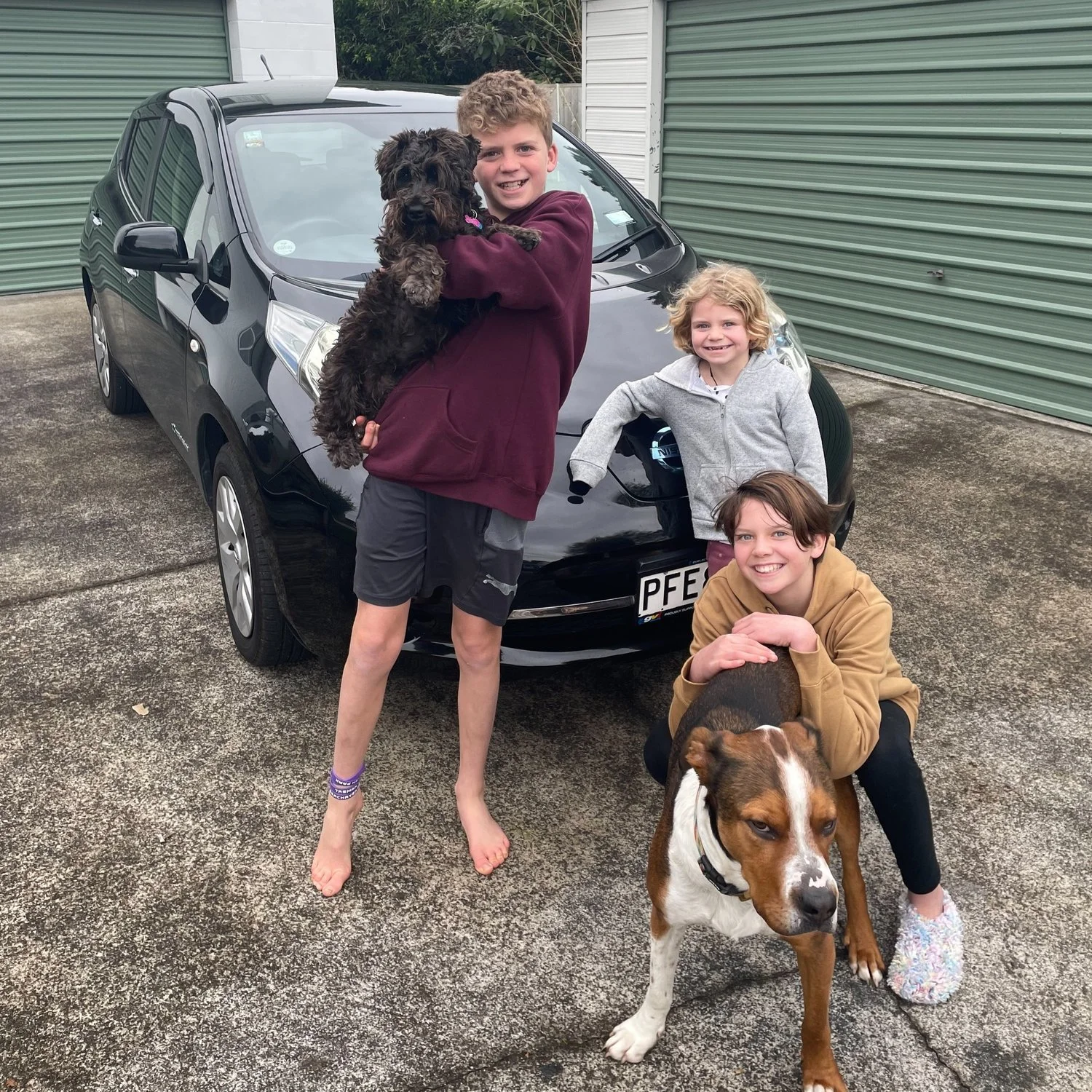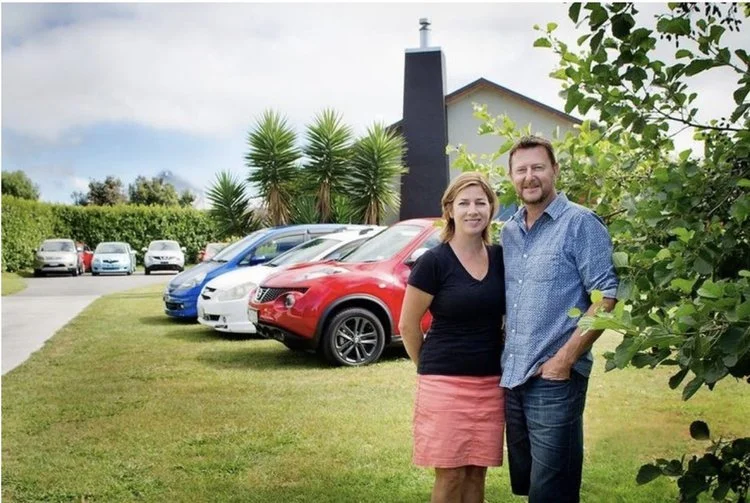Are YOU getting an EV?
After co-hosting “Electricarna: EVs explained” alongside Venture Taranaki, we decided to follow up on attendees to find out what had changed and what else they needed to take the next steps towards purchasing an EV.
The first thing we learned is that it’s not JUST about buying an EV.
50% of respondents are considering buying an EV or analysing their options, and a further 35% are researching more information about EV ownership.
Most respondents said that they now had a better understanding of the realities and benefits of owning an EV. This was the goal of these events.
While the adoption of EVs is an important factor in reducing our emissions (NZ’s Emissions Reduction Plan aims for EVs to make up 30% of the light vehicle fleet by 2035), we do know that this is not the only solution.
However, encouraging awareness of different options and improvements in a variety of fields is a step forward in achieving national and international emissions reduction goals.
Our respondents are not only thinking about EVs, but are also engaging in other little daily behaviours to reduce their transport emissions.
Most of them are consolidating trips: just taking the car out once, for example, to go to the supermarket, schools and shops. Others are opting for active transport alternatives like biking and walking. And while some already own an EV, others have small or efficient cars or are carpooling to work. These are all valuable examples of actions that reduce transport emissions. We are looking for a variety of solutions, not just one!
Additionally, the IPCC report mentions that individual mobility choices have the largest potential to reduce carbon footprints. Purchasing Electric Vehicles is one of the key behaviours identified for this goal, as shown by RARE in the graph to the right.
Source: RARE 2021
When asked what motivated them initially to purchase an EV, one of our case study respondents said that consideration for the environment, climate change and pollution were the main factors.
The benefits of EVs are not just related to environmental concerns. EECA also found that the main perceived benefit of EVs is that they produce less air pollution, which links to health benefits and more quality of life.
Source: EECA Consumer Monitor 2021
62% of respondents said they were very likely or likely to purchase an EV.
The number of EV owners keeps growing every year in Aotearoa: annual registrations almost doubled between 2019 and 2021: from 7,000 to just over 13,000. People are obviously seeing the benefits of owning an EV and finding ways to overcome their perceived barriers, such as the availability of charging locations or investment costs.
James Catty and Denise Houston got their EV after attending Electricarna: EVs explained
We watched the Zoom recording of the EV presentation put on in Hāwera. This gave us lots of information about the capabilities and limitations of owning a second hand EV in New Zealand. From the buying process, running costs and through to considering long distance travel this presentation by real life EV owners, convinced me that an owning EV was a possibility.
There is plenty to choose from, too: 36 different EV models are available in the country, a significant increase from just 8 models in 2015. Check out Drive Electric’s new search tool, where you can find and compare the options available in New Zealand.
From one of our case study respondents: “For me, the process was to find as much information as possible to do both a technical and financial evaluation of the available options.”
With all this in mind, deciding about buying an EV seems to involve some evaluation of costs, benefits, challenges and model options. But it is clear that for most people, the benefits outweigh the costs, especially when driven by needs like reducing air pollution and emissions while owning a quality vehicle.
Having young children meant even though the children walked to school, there was still lots of trips to dance classes, sports practices and groceries to collect. Lots of our trips as a family were very short, but the frequency was high. We calculated that a return trip to a ballet class would cost us $6 each week in fuel on top of the class fees. All this plus the rising price of petrol meant that we knew an older second hand EV would be perfect for our busy family in getting around to everything we squeeze into our week.
There is a lot of myth-busting needed to get to the goal of 30% by 2035 though. Factors such as low battery range, pollution caused by batteries and EV waste, and high costs of EVs, among others, are often based on information that is outdated. That’s why it’s so important to get your info from reliable and knowledgeable sources.
Still, many things have improved in the last few years, and the growing numbers of EV owners here and elsewhere show this trend. Government support, such as the Clean Car Discount, has also motivated people to opt for an EV.
The clean car discount has made a huge difference. We applied for this through Waka Kotahi after we received the vehicle and it arrived in our bank account about three weeks later. In finally taking the leap, it was definitely watching the presentation by Stephen Hobo-Tuck et al. It was great to hear the real life experiences of EV owners and work out that although the technology is different, there is nothing much different about driving a petrol car.
Information events such as Electricarna have shown to be a useful way to learn more about EVs, get questions answered and start making plans about buying one.
We’re happy to see the effects of these events on people’s decisions and look forward to continuing to offer education and networking opportunities to support our community to become more sustainable.
We have started our EV journey with an older second hand model which is perfect as our around-town run-around. We can prove the concept for our family! I would advise any family to keep a log of the types of trips you do. When the time is coming to replace the vehicle, see whether there is an opportunity to replace it with an EV. You might be surprised how much of your use is based on short trips around town. The use of an EV for these is both easy and cost effective.
Thanks so much to our case study respondents, to everyone who attended Electricarna and to those who completed our survey.
If you are interested in purchasing an EV, then we recommend Philip Brown, better known as The Car Man - our region’s expert dealer of electric vehicles.
We are rapt to have Phil as a sponsor for the Sustainable Backyards Trail this year.
Keen to learn more? Read our page on Green Travel.
Join our Sustainable Taranaki Community Facebook Group to share your experiences or ask questions from the Taranaki community. We’d love to hear from you!
Download the full survey results here.
Written by Alexandra Vernal

